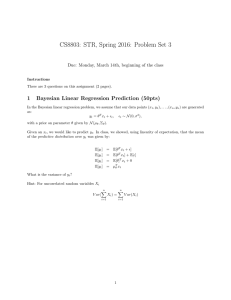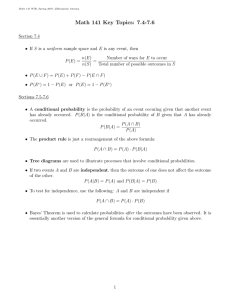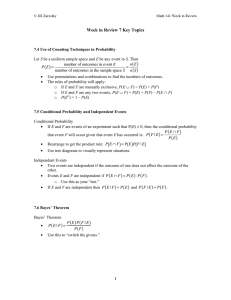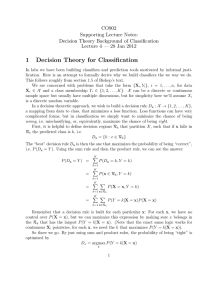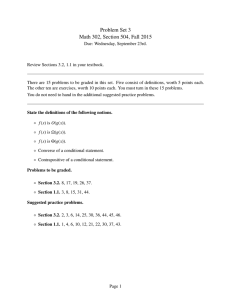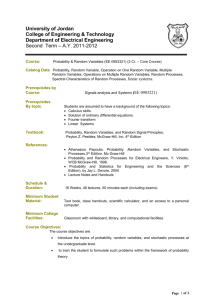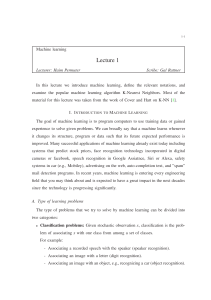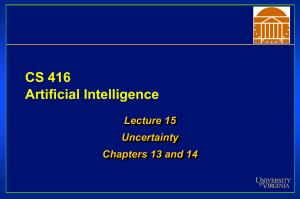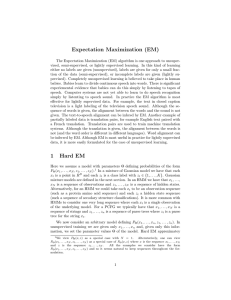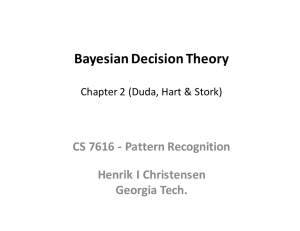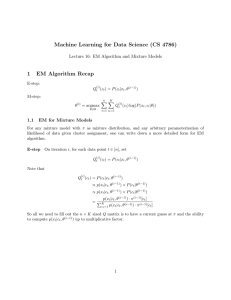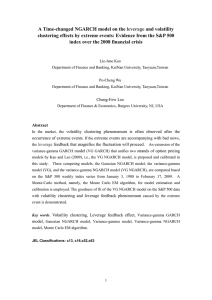1 Optimal Classifier Shortcut CO902 Supporting Lab Notes:
advertisement
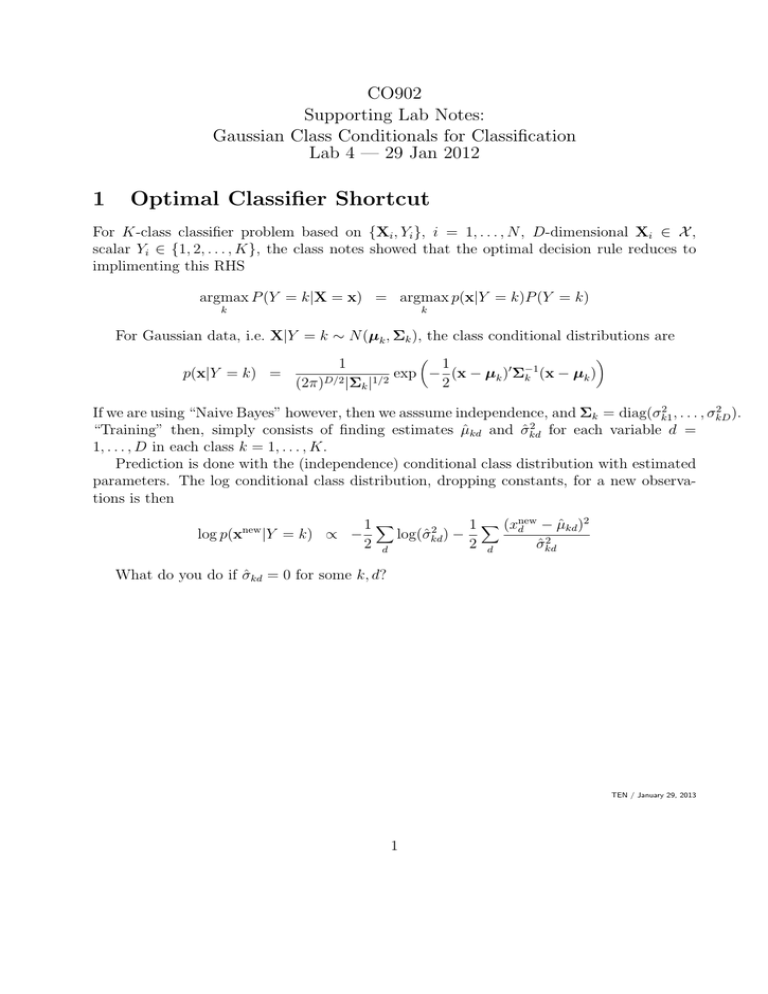
CO902
Supporting Lab Notes:
Gaussian Class Conditionals for Classification
Lab 4 — 29 Jan 2012
1
Optimal Classifier Shortcut
For K-class classifier problem based on {Xi , Yi }, i = 1, . . . , N , D-dimensional Xi ∈ X ,
scalar Yi ∈ {1, 2, . . . , K}, the class notes showed that the optimal decision rule reduces to
implimenting this RHS
argmax P (Y = k|X = x) = argmax p(x|Y = k)P (Y = k)
k
k
For Gaussian data, i.e. X|Y = k ∼ N (µk , Σk ), the class conditional distributions are
1
1
(x − µk )0 Σ−1
exp
−
k (x − µk )
D/2
1/2
(2π) |Σk |
2
p(x|Y = k) =
2
2
If we are using “Naive Bayes” however, then we asssume independence, and Σk = diag(σk1
, . . . , σkD
).
2
“Training” then, simply consists of finding estimates µ̂kd and σ̂kd for each variable d =
1, . . . , D in each class k = 1, . . . , K.
Prediction is done with the (independence) conditional class distribution with estimated
parameters. The log conditional class distribution, dropping constants, for a new observations is then
log p(x
new
− µ̂kd )2
1X
1 X (xnew
d
2
log(σ̂kd ) −
|Y = k) ∝ −
2
2 d
2 d
σ̂kd
What do you do if σ̂kd = 0 for some k, d?
TEN / January 29, 2013
1
